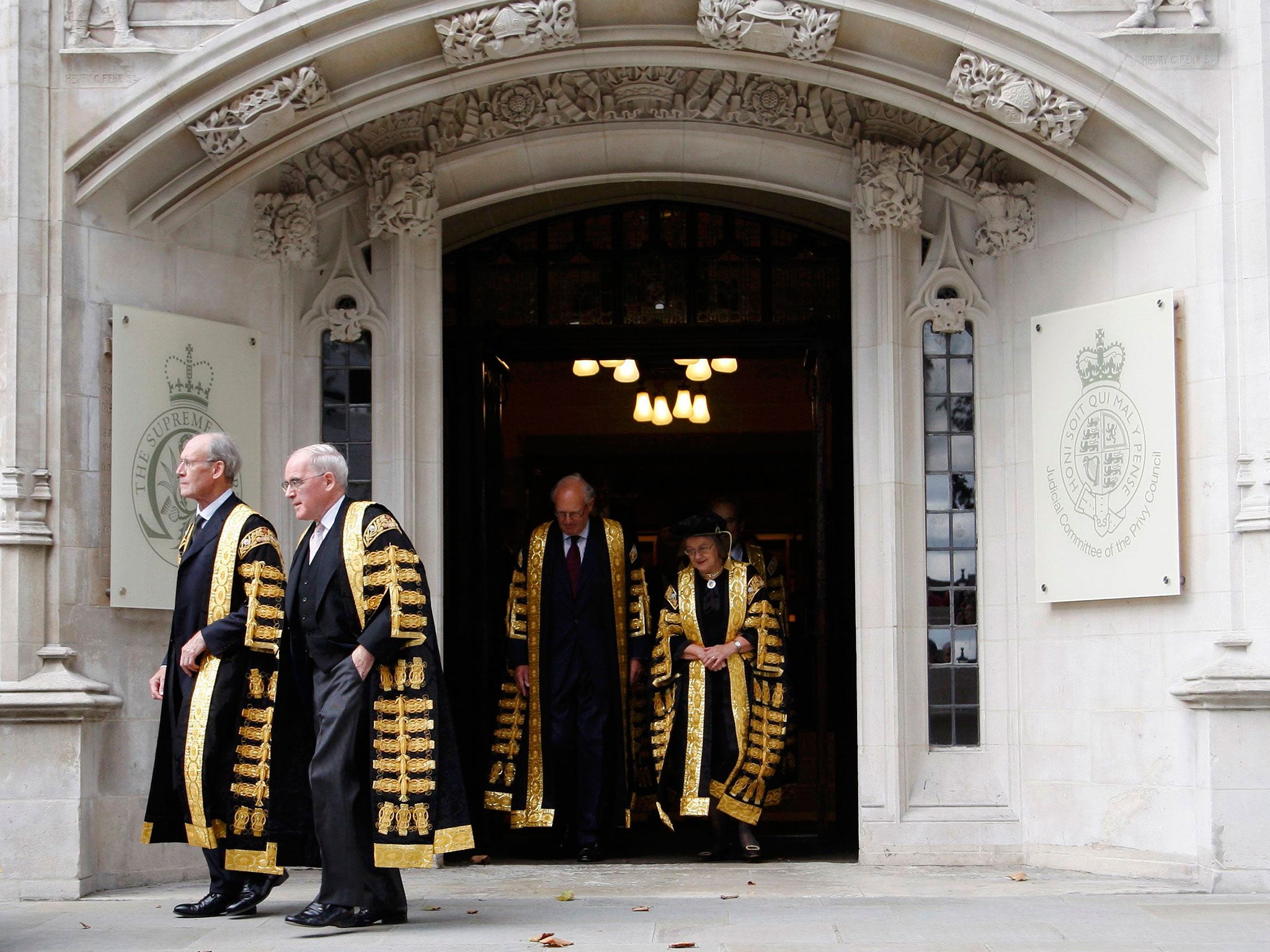The Supreme Court’s ruling on joint enterprise is correct
The change is one that will benefit those given unfairly harsh sentences, and make little difference to convicts who have already received their just desserts

Your support helps us to tell the story
From reproductive rights to climate change to Big Tech, The Independent is on the ground when the story is developing. Whether it's investigating the financials of Elon Musk's pro-Trump PAC or producing our latest documentary, 'The A Word', which shines a light on the American women fighting for reproductive rights, we know how important it is to parse out the facts from the messaging.
At such a critical moment in US history, we need reporters on the ground. Your donation allows us to keep sending journalists to speak to both sides of the story.
The Independent is trusted by Americans across the entire political spectrum. And unlike many other quality news outlets, we choose not to lock Americans out of our reporting and analysis with paywalls. We believe quality journalism should be available to everyone, paid for by those who can afford it.
Your support makes all the difference.Does it seem just that somebody who played no physical part in a killing – neither wielding the knife, nor pulling the trigger – can be convicted of murder? For 30 years, the British judicial system has sentenced bystanders to this gravest penalty, if they can be shown to have been part of a plan to carry out a crime.
Under the law of joint enterprise, gangs have been treated like an individual: most famously, in 2012, when 20 London teenagers were charged with the murder of Sofyen Belamouadden, though some – fighting en masse against pupils from another school – had not touched the boy. There is now an opportunity for appeal here, as in hundreds of other murder cases, after the Supreme Court ruled that joint enterprise laws have been interpreted incorrectly. The Court has made the right decision.
It is an important moment in legal history, but the justices were quick to point out that many of those convicted under joint enterprise will remain in prison. The landmark case concerns Ameen Jogee, convicted of murder in 2012 after his friend, Mohammed Hirsi, had stabbed a former police officer to death the year before. He will now either face a retrial for murder (but not under joint enterprise) or have his conviction replaced by one for manslaughter. This ruling is not a “let-off” for criminals, but an opportunity to have cases tried on a more nuanced, accurate basis.
It may not feel that way to the family members of murder victims. Tracey Fyfe, widow of Paul Fyfe, the officer Hirsi killed, said that upholding Jogee’s appeal would amount to letting him “get away with murder”. Mrs Fyfe’s disappointment in the ruling is understandable. But the anger of victims should not hold sway over the court system. Common sense dictates that Jogee, though a guilty man, was not guilty of murder.
It undermined the British justice system to hand out punishments on a one-size-fits-all basis. The detail of the justices’ ruling is worthy of note: from today, murder convictions can only be handed down to a bystander if they were signed up mentally to the crime, and not merely present. Previously, being present was taken as “automatic assent”. But, as juries in the Belamouadden case noted (choosing to reject the prosecutors’ call for unanimous murder verdicts for all, and handing down just three) there are occasions when people may be caught up in a murder, but had neither the intent to carry one out nor given any encouragement.
The majority of the 20 schoolchildren tried for Belamouadden’s murder were black, and the disproportionate ethnic focus of joint enterprise verdicts raised eyebrows: one research project found that 37 per cent of those serving time under it are black, 11 times more than the proportion in the general population, and three times the rate in prison.
The prospect of hundreds of retrials comes with a hefty price-tag. That, however, is no reason to let an injustice lie. There will be prisoners serving inappropriate sentences, and all those serving time for joint enterprise who wish to have a retrial should now have their cases heard.
That raises the unpalatable prospect of men such as David Norris and Gary Dobson, convicted under joint enterprise in 2012 for the murder of Stephen Lawrence, returning to court. But, with fibre and hair evidence tying them both to Mr Lawrence, and their transparent intent to commit a violent crime that day in 1993, their circumstances are unlikely to be changed by this ruling. The change is one that will benefit those given unfairly harsh sentences, and make little difference to convicts who have already received their just desserts.
Join our commenting forum
Join thought-provoking conversations, follow other Independent readers and see their replies
Comments